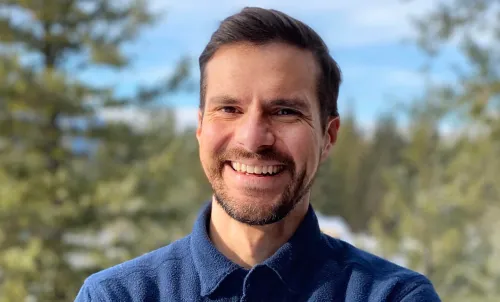Daniel Karell, Assistant Professor of Sociology, Recognized by American Sociological Association
The Distinguished Contribution to Scholarship Article Award recognized Karell’s 2023 article "'Born for a Storm': Hard-Right Social Media and Civil Unrest."

Daniel Karell, Assistant Professor of Sociology in Yale's Faculty of Arts and Sciences, received an award from the American Sociological Association’s section on Collective Behavior and Social Movements.
The Distinguished Contribution to Scholarship Article Award recognized Karell’s 2023 article "'Born for a Storm': Hard-Right Social Media and Civil Unrest," published in the American Sociological Review and co-authored with Andrew Linke of the University of Utah, Edward Holland of the University of Arkansas, and Edward Hendrickson, who served as Karell’s research assistant at Yale as he completed his MA in African Studies at Yale's MacMillan Center.
“There has been a lot of research on the offline consequences of using social media, such as how it can affect users' mental health and voting behavior,” Karell said of the research gap that inspired the study. “However, when I started this project, there had been less research on the role of social media in offline protest, civil unrest, and political violence, particularly in democratic contexts like the United States and about so-called alt-tech platforms that have a smaller but more devoted community, such as Gab, Parler, and Truth Social.”
Karell also noted that much of the research that had been done offered a "mixed picture, despite the widespread assumption that social media can play a big part in mobilizing social movements and protest activity.”
In early 2020, Karell and his collaborators decided to examine new data related to activity on social media site Parler to study whether there was a connection between activity on the platform and “subsequent offline hard-right civil unrest, as well as what kinds of content on Parler predicted events of unrest.”
The study found evidence that a 10% increase in hard-right social media activity predicted a .04% increase in the number of hard-right civil unrest events in the subsequent month.
Karell said that connecting social media content with real-world effects also allowed his team to “test a common idea in social movement research – that social movements need to grow their base of supporters to mobilize action, like protests.”
“However, if small, niche sites like Parler and Truth Social could incite offline action, perhaps social movements do not need to broaden their appeal to facilitate offline action, but rather mobilize a small core of highly motivated supporters.”